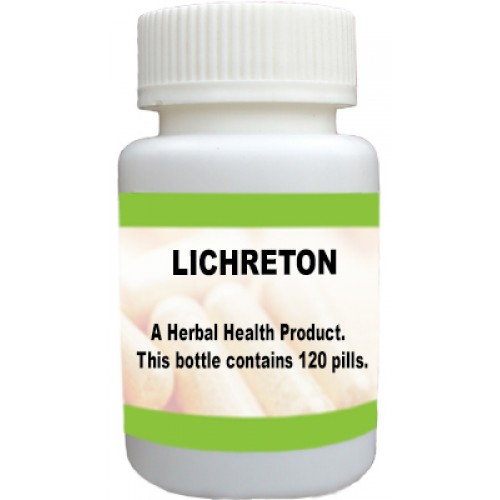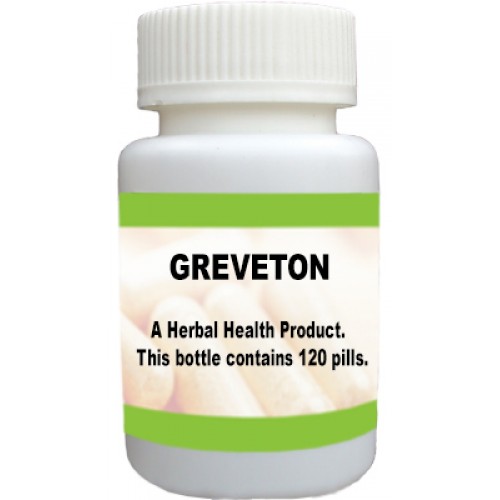Lichen planus is a chronic skin condition that affects millions of people worldwide. Characterized by itchy, purple-colored bumps on the skin, it can cause discomfort and embarrassment for those who suffer from it. While there are several treatment options available, many individuals are turning to natural remedies for relief. And now, there's even more reason to consider natural treatments, as there's a new treatment for lichen planus on the horizon. The best supplements for lichen planus and how they can help alleviate symptoms of this condition. So if you're tired of relying on traditional medications and looking for a more natural approach, This exciting new treatment for lichen planus.
Understanding Lichen Planus: Symptoms and Causes
Lichen planus is a skin condition that can cause a lot of discomfort and embarrassment for those who suffer from it. Understanding the symptoms and causes of lichen planus is crucial in finding the best treatment options. The symptoms of lichen planus usually include itchy, purple-colored bumps on the skin, which can be accompanied by a burning sensation. In some cases, these bumps may also appear as white, lacy patches or ulcers.
The exact cause of lichen planus is unknown, but it is believed to be an autoimmune condition, meaning that the body's immune system mistakenly attacks its own cells. Certain triggers, such as stress, infections, or medications, may also play a role in the development of lichen planus.
While traditional New Treatment for Lichen Planus focus on relieving symptoms, such as itching and inflammation, there is a growing interest in New Treatment for Lichen Planus. Many individuals are turning to natural supplements for lichen planus, as they may provide relief without the potential side effects of traditional medications.
The traditional treatment options available for lichen planus and discuss their effectiveness. Stay tuned to learn more about the exciting breakthroughs in New Treatment for Lichen Planus and how they can help manage this chronic skin condition.
Traditional Treatments for Lichen Planus
When it comes to treating lichen planus, there are several traditional options available. One of the most common treatments is the use of topical corticosteroids, which can help reduce inflammation and relieve itching. These creams or ointments are applied directly to the affected areas and can provide temporary relief.
In addition to topical New Treatment for Lichen Planus, oral corticosteroids may also be prescribed for more severe cases of lichen planus. These medications work by suppressing the immune system and can help alleviate symptoms. However, they come with potential side effects and should be used with caution.
Another traditional treatment option is phototherapy, which involves exposing the skin to controlled amounts of ultraviolet light. This can help reduce inflammation and promote healing of the skin.
While these traditional New Treatment for Lichen Planus can be effective in managing lichen planus symptoms, many individuals are now seeking natural alternatives. The use of supplements for skin health, such as vitamins A, C, and E, as well as zinc and omega-3 fatty acids, has shown promising results in alleviating symptoms of lichen planus. These supplements can help support the immune system and reduce inflammation naturally, making them a viable option for those looking for a more natural approach to managing this condition. Read more
In the next section, we'll dive deeper into the breakthrough natural treatments for lichen planus that are gaining attention. So stay tuned to learn more about how these alternatives can provide relief from the discomfort and embarrassment of lichen planus.
The Breakthrough: New Treatment for Lichen Planus
The search for natural treatments for lichen planus has led to an exciting breakthrough: the use of supplements for skin health. These supplements, such as vitamins A, C, and E, along with zinc and omega-3 fatty acids, have shown great potential in alleviating symptoms of lichen planus. Not only do they support the immune system, but they also reduce inflammation naturally. This makes them a top choice for individuals looking for a more natural approach to managing this chronic skin condition.
One of the best supplements for skin health is vitamin A. This powerful antioxidant helps regulate cell turnover and promotes healthy skin. Vitamin C is another essential nutrient that plays a key role in collagen production and skin repair. Vitamin E, on the other hand, is known for its moisturizing and healing properties.
In addition to these vitamins, zinc is a mineral that helps boost the immune system and promote skin healing. Omega-3 fatty acids, found in fish oil, have anti-inflammatory properties that can help reduce itching and inflammation associated with lichen planus.
When combined with a healthy diet and lifestyle, these supplements can provide significant relief from the discomfort and embarrassment of lichen planus. So if you're tired of relying on traditional medications and looking for a more natural approach, consider incorporating these best supplements for skin health into your daily routine.
Home Remedies for Lichen Planus Management
If you're looking for additional ways to manage your lichen planus symptoms, there are some home remedies you can try. While these remedies may not be a cure-all, they can provide some relief and help improve the overall health of your skin. One of the Best Supplements For Skin health is turmeric. This yellow spice contains a compound called curcumin, which has anti-inflammatory and antioxidant properties. You can incorporate turmeric into your diet by adding it to your meals or taking a curcumin supplement. Another natural treatment for lichen planus is aloe vera. This soothing plant can help reduce inflammation and itching when applied topically to the affected areas. You can find aloe vera gel or lotion at most drugstores or natural health stores. Finally, maintaining a healthy lifestyle with a balanced diet, regular exercise, and stress management can also play a significant role in managing lichen planus symptoms. By incorporating these home remedies into your daily routine, you can complement the use of supplements and improve your overall well-being.
Tips to Prevent Lichen Planus Flare-ups
Lichen Planus Natural Treatment is not just about finding relief from the symptoms; it's also about preventing flare-ups from occurring in the first place. Here are some tips to help you keep lichen planus under control:
- Practice good skin hygiene: Keep your skin clean and dry to minimize the risk of infections that can trigger flare-ups. Use mild, fragrance-free cleansers and avoid harsh scrubbing.
- Protect your skin from irritants: Avoid using harsh soaps, detergents, and chemicals that can irritate your skin. Opt for gentle, hypoallergenic products instead.
- Moisturize regularly: Dry skin can exacerbate lichen planus symptoms, so it's important to keep your skin moisturized. Choose a non-comedogenic moisturizer and apply it daily, especially after bathing.
- Avoid triggers: Pay attention to what triggers your flare-ups and try to avoid or minimize exposure to those triggers. Common triggers can include stress, certain foods, medications, and even certain fabrics.
- Manage stress: Stress can worsen lichen planus symptoms, so finding healthy ways to manage stress is crucial. Try practicing relaxation techniques such as deep breathing, yoga, or meditation.
Remember, everyone's experience with lichen planus is different, so it may take some trial and error to find what works best for you. Be patient and persistent, and don't hesitate to seek professional help if needed.
The Importance of Diet for Lichen Planus
Lichen Planus Natural Treatment goes beyond just supplements and topical remedies; it also involves paying attention to your diet. While there is no specific diet that is proven to cure lichen planus, certain dietary changes may help alleviate symptoms and promote overall skin health.
Firstly, it's important to include foods rich in antioxidants in your diet. Antioxidants help protect the body's cells from damage caused by free radicals, which can contribute to inflammation. Foods like berries, leafy greens, and brightly colored fruits and vegetables are excellent sources of antioxidants.
In addition, omega-3 fatty acids, found in fatty fish like salmon and mackerel, as well as chia seeds and flaxseeds, have anti-inflammatory properties that may help reduce inflammation associated with lichen planus.
It's also beneficial to limit your intake of processed foods, sugary snacks, and refined carbohydrates, as these can contribute to inflammation and weaken the immune system.
Remember, while dietary changes may not completely eliminate lichen planus, they can complement other natural treatments and contribute to overall skin health. So, make sure to nourish your body with a balanced and nutritious diet to support your skin's well-being.
Related Article:
https://nycnewsly.com/a-comprehensive-guide-to-oral-lichen-planus-treatment-and-prevention/






